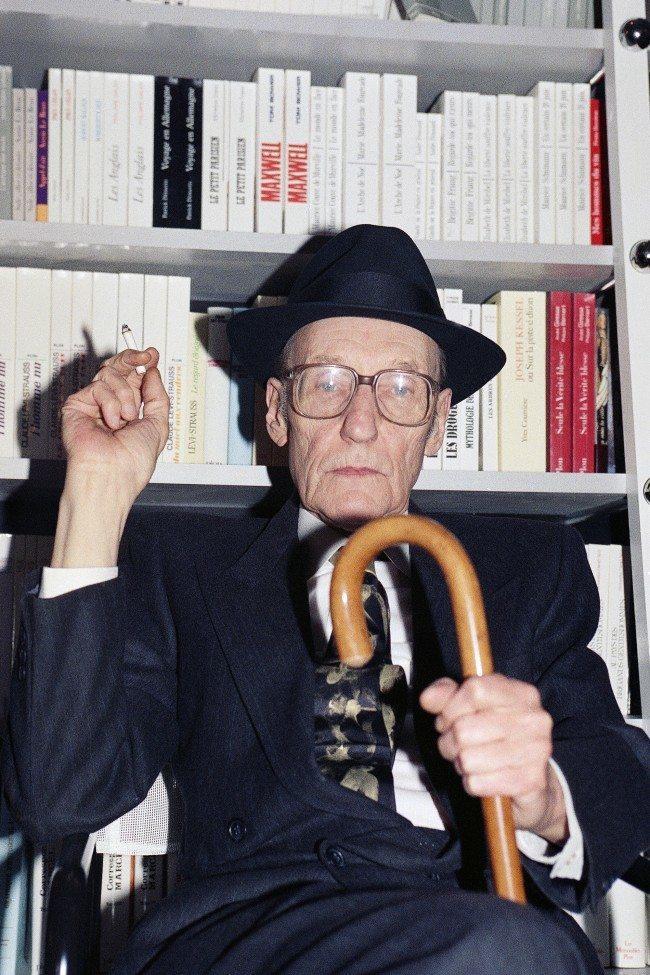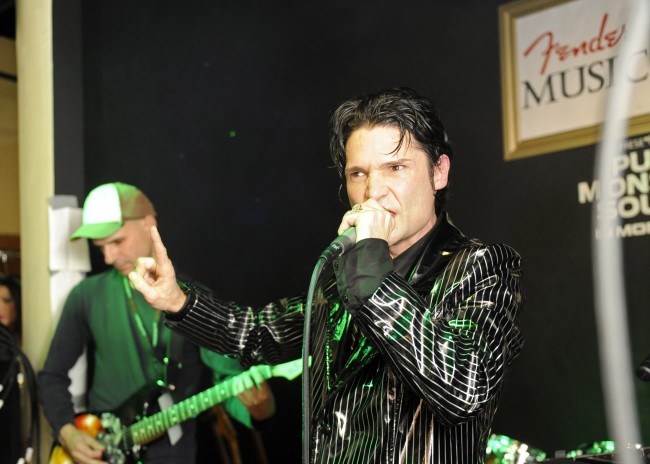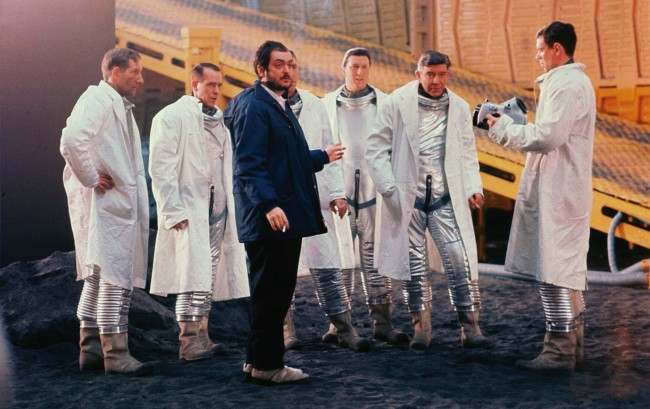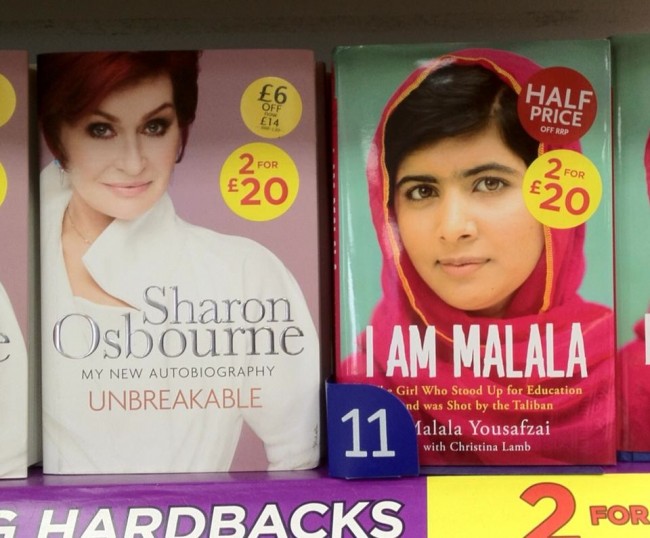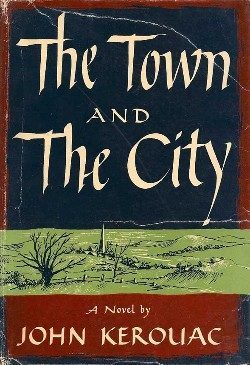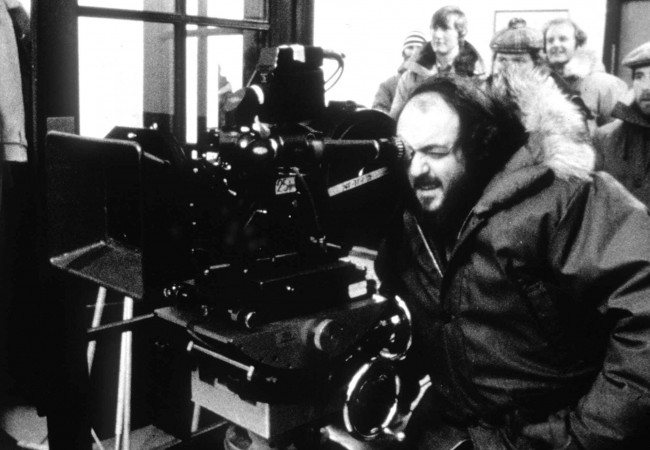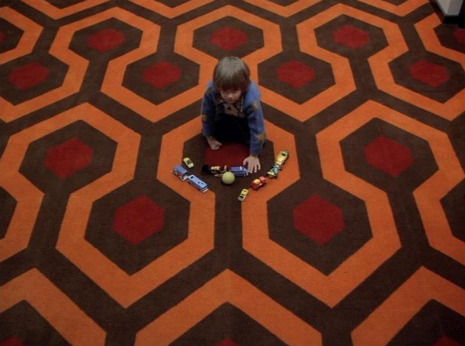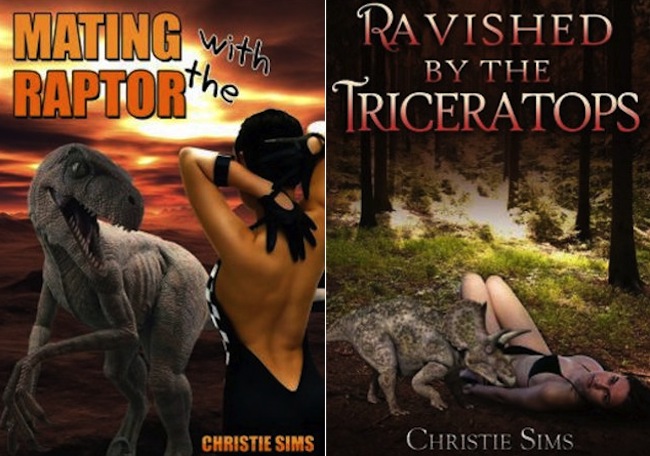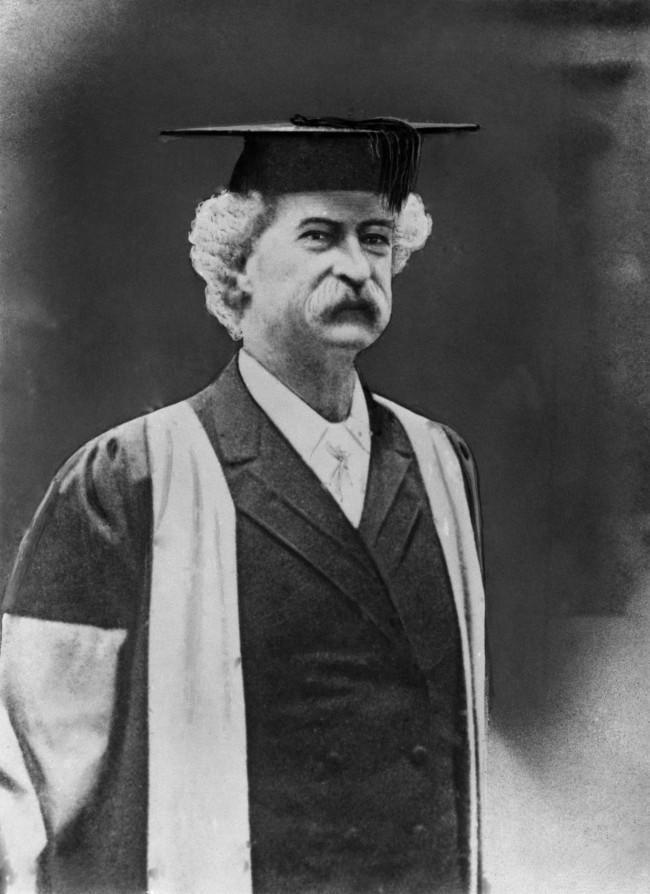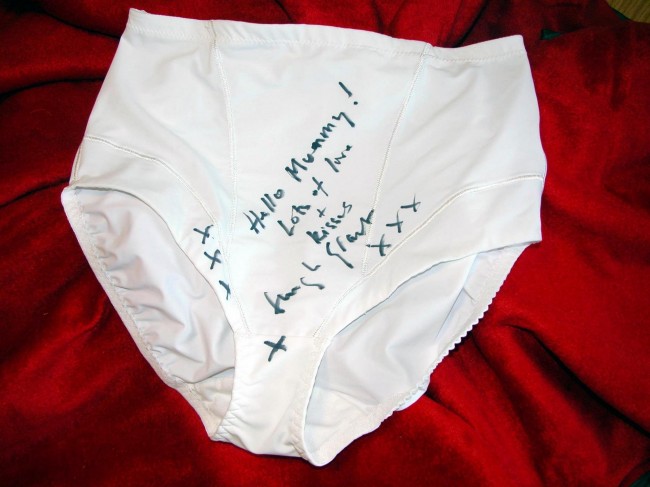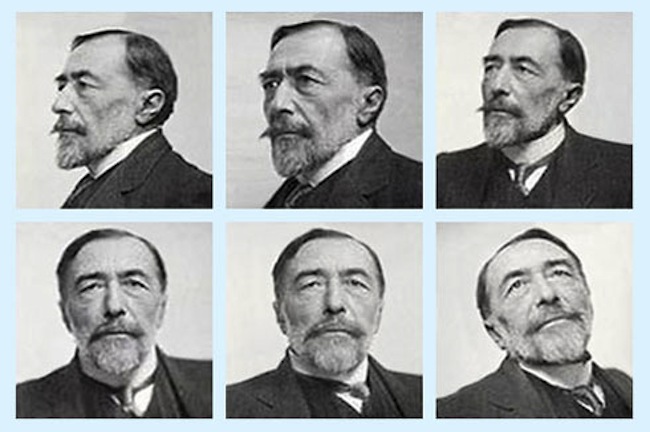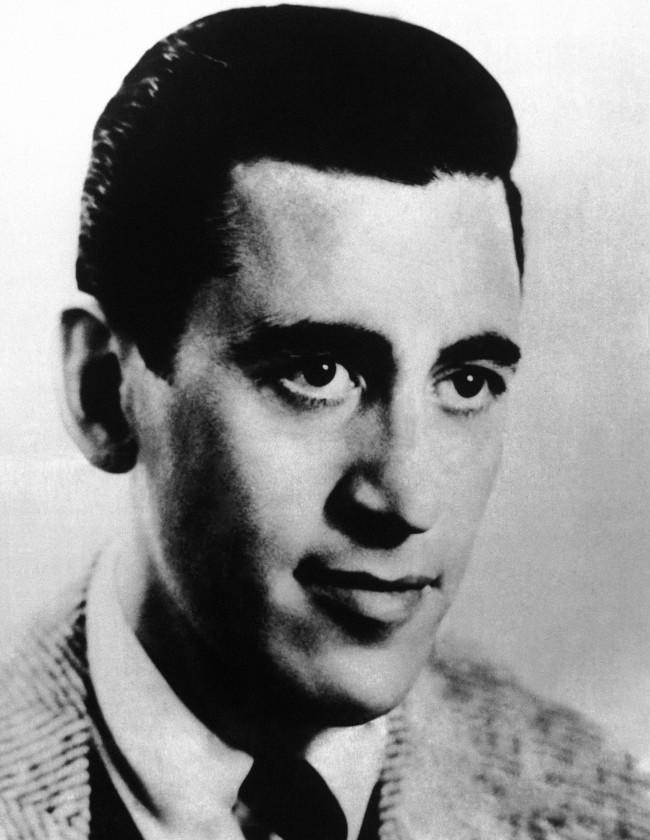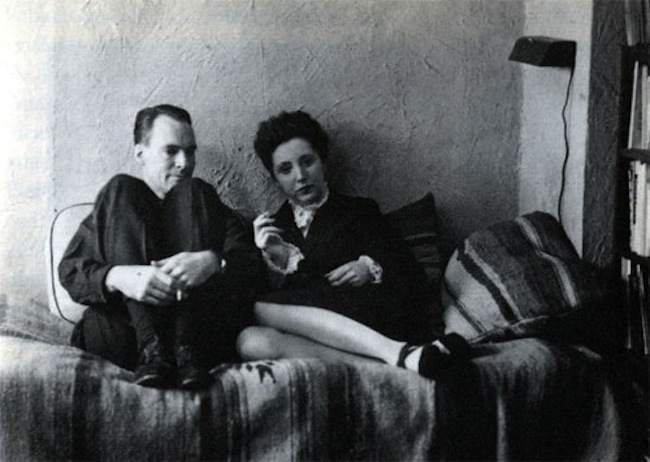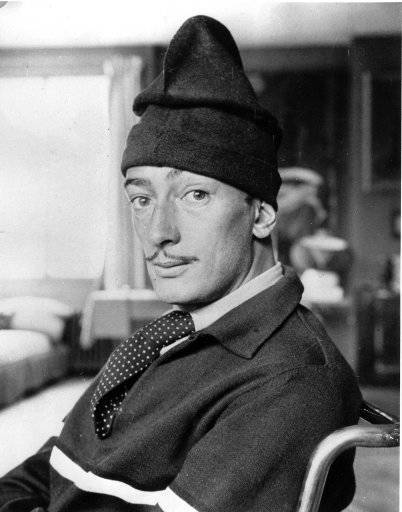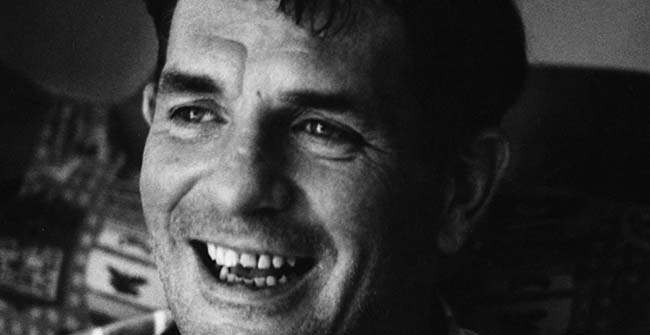Books Category
The latest books and literature reviews, comment, features and interviews, with extracts from famous texts and neglected gems.
William S. Burroughs Sings Songs Of Poets From The Beatnik Book
WILLIAM S. Burroughs is known for his collaboration with rock musicians in the 1990s. But he had previous.
Read the rest of this entry »
Posted: 3rd, November 2013 | In: Books, Flashback, Music | 2 Comments
Gertrude Stein: A Great Rejection Letter And A Study Of The Back Of Her Head
ON April 19, 1912, Gertrude STrine received this letter from Arthur C Fifield, Publisher.
Read the rest of this entry »
Posted: 25th, October 2013 | In: Books, Celebrities, Flashback | 0 Comments
Coreyography: Corey Feldman On Growing Up One Step Down From Slavery
IN Coreyography, former child star Corey Feldman tells of his life. Parts of it sound awful. Although, as he said:
“I had a terrible childhood. I can only compare it to someone born in Ethiopia, or Iraq, or who is born into slavery, or gang life. Well I haven’t lived through that, but the next step down.”
Read the rest of this entry »
Posted: 23rd, October 2013 | In: Books, Celebrities | 0 Comments
Peter Serafinowicz Sings The First Page Of Morrissey’s Autobiography
PETER Serafinowicz will now sing the first page of Morrissey’s autobiography:
Posted: 17th, October 2013 | In: Books, Music | 0 Comments
Stanley Kubrick explains the meaning of 2001: A Space Odyssey
STANLEY Kubrick’s 2001: A Space Odyssey was a film about… Well, what is about? In 1969, Kubrick told Joseph Gelmis:
You begin with an artifact left on earth four million years ago by extraterrestrial explorers who observed the behavior of the man-apes of the time and decided to influence their evolutionary progression. Then you have a second artifact buried deep on the lunar surface and programmed to signal word of man’s first baby steps into the universe—a kind of cosmic burglar alarm. And finally there’s a third artifact placed in orbit around Jupiter and waiting for the time when man has reached the outer rim of his own solar system.
When the surviving astronaut, Bowman, ultimately reaches Jupiter, this artifact sweeps him into a force field or star gate that hurls him on a journey through inner and outer space and finally transports him to another part of the galaxy, where he’s placed in a human zoo approximating a hospital terrestrial environment drawn out of his own dreams and imagination. In a timeless state, his life passes from middle age to senescence to death. He is reborn, an enhanced being, a star child, an angel, a superman, if you like, and returns to earth prepared for the next leap forward of man’s evolutionary destiny.
That is what happens on the film’s simplest level. Since an encounter with an advanced interstellar intelligence would be incomprehensible within our present earthbound frames of reference, reactions to it will have elements of philosophy and metaphysics that have nothing to do with the bare plot outline itself.
Read the rest of this entry »
Posted: 14th, October 2013 | In: Books, Film, Flashback | 0 Comments
Princess Michael Of Kent: ‘Don’t be up too late, darling’ and notes on a plain Ryvita
PLUGGING her book of fiction The Queen of Four Kingdoms (‘The epic true story of a rich and riveting period of French and English history, all witnessed by the captivating and complex heroine Yolande”), Princess Michael of Kent shows off some remarkable gems. She remains very uncommon in the Sunday Times interview:
I have a tray brought to my bedroom at 9am. Breakfast is served on my Herend china and I sit in an old armchair so I can read the papers. I have zero-fat yoghurt with cinnamon, which is meant to be a fat-burner, and a pot of ginger tea made with grated ginger. This I have with lavender honey and one plain Ryvita. Life is a battle against the expanding waistline, so some mornings I just have a fresh juice made from five vegetables that my manicurist told me about. It’s frightfully good.
Read the rest of this entry »
Posted: 13th, October 2013 | In: Books, Royal Family | 0 Comments
Malala Yousafzai: father regrets not protecting her from Bono and extracts from her auobiography

TO write I Am Malala: The Girl who Stood up for Education and Was Shot by the Taliban, Christina Lamb spent a year in Birmingham with Malala Yousafzai, the Pakistani girl shot by the Taliban. A few extracts from it. One notable fact is that her mother, Tor Pekai, is illiterate.
I had travelled up from London by train with her agent. As I am quickly to discover, there is a circus of people around Malala, including a leading PR company, an investment-banker friend of the family, do-good celebrities such as Angelina Jolie, and even former prime minister Gordon Brown, who hired Malala’s dad as an adviser to his own role as global education envoy for the UN. Everyone wants a part of her.
Read the rest of this entry »
Posted: 13th, October 2013 | In: Books, Celebrities, Reviews | 1 Comment
Sharon Osbourne v Malala: battle of the book covers
JUXTAPOSITION of the day: The title of Sharon Osbourne’s book (Unbreakable) looks somewhat hyperbolic when put next to Malala (I Am Malala):
Posted: 11th, October 2013 | In: Books | 0 Comments
Jack Kerouac’s original sketch for On The Road (and all the book’s covers)
JACK Kerouac was so unimpressed by the cover his publishers stuck on The Town and the City, he sketched the one he wanted for OneThe Road.
Read the rest of this entry »
Posted: 10th, October 2013 | In: Books, Flashback | 0 Comments
Drunk Jack Kerouac debates ‘hippie” and its meaning with a pompous William F. Buckley – Fernanda Pivano just gets it
JACK Kerouac, author of the classic, On the Road liked a drink or three.
In this video, Kerouac talks with writer Fernanda Pivano. He is three sheets to the wind:
In 1965, Kerouac was on the magic box again. William F. Buckley was in the chair, whose pomposity and self-regard is hilarious.
Read the rest of this entry »
Posted: 9th, October 2013 | In: Books, Flashback, TV & Radio | 0 Comments
King v Kubrick: The Shining sequel will be as unfilmable as all great books are
ARE some books unfilmable? Does reading the book first spoil the film and vice versa?
Stephen King’s The Shining is a cracking read. Stanley Kubrick film adaptation of it is also fantastic, a capacious, sinister spine-tingler. But when the film came out many of the book’s fans were upset. Scenes had been omitted from the book’s version of life at the Overlook Hotel. But did you see that lift full of blood? Young Danny riding his tricycle over the wooden floor and then onto the oh-so-silent carpet? Once seen, never forgotten.
The book is not the film. The book is the book. The film is the film.
Talk of King and Kubrick’s work is relevant because the author has released a sequel to The Shining, entitled Doctor Sleep. Kubrick has died, so he won’t be any film version.
King might be relieved. As he says:
“I am not a cold guy. And with Kubrick’s The Shining I thought that it was very cold.
“Shelley Duvall as Wendy is really one of the most misogynistic characters ever put on film. She’s basically just there to scream and be stupid. And that’s not the woman I wrote about…I met him [Kubrick] on the set and just on that one meeting, I thought he was a very compulsive man.”
Jason Bailey:
King’s great novels work because they put us into the heads of his characters, because they convey psychological as well as external struggles, because their inner monologues can pour forth out of his prose. It’s part of what makes him a great writer. It’s also why there have been so many lousy films based on Stephen King books — because all of that is lost in the translation. And Kubrick would have been a lousy novelist, his meticulous detachment resulting in, we could presume, so pretty turgid and lifeless writing. But luckily, he was a filmmaker, and his gifts as an aesthete are what made him such a singularly fine one.
Laura Miller says King was right to be unimpressed by Kubrick:
King is, essentially, a novelist of morality. The decisions his characters make — whether it’s to confront a pack of vampires or to break 10 years of sobriety — are what matter to him. But in Kubrick’s “The Shining,” the characters are largely in the grip of forces beyond their control. It’s a film in which domestic violence occurs, while King’s novel is about domestic violence as a choice certain men make when they refuse to abandon a delusional, defensive entitlement. As King sees it, Kubrick treats his characters like “insects” because the director doesn’t really consider them capable of shaping their own fates. Everything they do is subordinate to an overweening, irresistible force, which is Kubrick’s highly developed aesthetic; they are its slaves. In King’s “The Shining,” the monster is Jack. In Kubrick’s, the monster is Kubrick.
Kubrick understood the importance of taking a story and meticulously reworking it for an entirely different medium. The director was a master of genre cinema, stripping it down and blowing it up in its purest form. In fact two other successful King adaptations, Stand By Me (The Body) and The Shawshank Redemption (Rita Hayworth and Shawshank Redemption) are both riddled with inconsistencies between book and film – although not quite as fundamental as The Shining. King has highlighted these two films, along with Misery (1990), as his favourite cinematic interpretations.
It’s all about entertainment. You get to gorge on the book and the film.
Posted: 6th, October 2013 | In: Books, Film | 0 Comments
Dinosaur erotica exists: fiction for readers aroused by bad teeth and scaly skin
EXHAUSTED by My Little Pony fan fiction erotica, we’ve moved on to read the Velociraptor’s Nest. Yep. Dinosaur erotica is exists.
Azog stood, back to the wall, clad only in damp buckskins, waiting for the beast to slash at her torso until she lay helpless and bleeding on the damp cave floor. She wondered if it would kill her first, or if her limbs would be sliced from her body as the beast gorged on her.
Instead, it reached out with a classed hand to snatch at her damp animal hide as it clung to one shoulder. Azog felt the kiss of sharp claws against her skin as the hide slid from her shoulder and exposed on naked, heaving breast. The raptor paused, curious, sniffing at her as she pressed desperately against the wall.
A reptilian tongue, stiff and hot, dashed out to lick at the tender, naked flesh so suddenly exposed. Azog gasped at the touch, then gradually relaxed as her body warmed to the intoxicating sensation of the beast’s flesh against her own.
She wasn’t sure if her sudden arousal was because of her earlier thwarted climax in the cool stream, or if she was just desperate for one last pleasant sensation before being torn limb from limb by the great, scaly beast. Either way, Azog relished the rasp of its tongue, hot and rough, on her sensitive skin.
Read the rest of this entry »
Posted: 3rd, October 2013 | In: Books, Strange But True | 0 Comments
Mark Twain’s Advice to Little Girls
MARK Twain has Advice to Little Girls. As told to them in 1865:
Good little girls ought not to make mouths at their teachers for every trifling offense. This retaliation should only be resorted to under peculiarly aggravated circumstances.
If you have nothing but a rag-doll stuffed with sawdust, while one of your more fortunate little playmates has a costly China one, you should treat her with a show of kindness nevertheless. And you ought not to attempt to make a forcible swap with her unless your conscience would justify you in it, and you know you are able to do it.
You ought never to take your little brother’s “chewing-gum” away from him by main force; it is better to rope him in with the promise of the first two dollars and a half you find floating down the river on a grindstone. In the artless simplicity natural to this time of life, he will regard it as a perfectly fair transaction. In all ages of the world this eminently plausible fiction has lured the obtuse infant to financial ruin and disaster.
If at any time you find it necessary to correct your brother, do not correct him with mud—never, on any account, throw mud at him, because it will spoil his clothes. It is better to scald him a little, for then you obtain desirable results. You secure his immediate attention to the lessons you are inculcating, and at the same time your hot water will have a tendency to move impurities from his person, and possibly the skin, in spots.
If your mother tells you to do a thing, it is wrong to reply that you won’t. It is better and more becoming to intimate that you will do as she bids you, and then afterward act quietly in the matter according to the dictates of your best judgment.
You should ever bear in mind that it is to your kind parents that you are indebted for your food, and for the privilege of staying home from school when you let on that you are sick. Therefore you ought to respect their little prejudices, and humor their little whims, and put up with their little foibles until they get to crowding you too much.
Good little girls always show marked deference for the aged. You ought never to “sass” old people unless they “sass” you first.
Spotter: NYRB
Posted: 2nd, October 2013 | In: Books, Flashback | 0 Comments
Third Bridget Jones novel to have monumental character death
REMEMBER Bridget Jones and her big knickers, kissing and vague alcoholism? Well, she’s due a new book called ‘Mad About The Boy’ which will look at the now 51 year-old Bridget, only with one notable absence in her life.
SPOILER ALERT! SPOILER ALERT!
Helen Fielding has announced that she has decided to kill off Mark Darcy, the man played by Colin Firth in the flicks, leaving our Isn’t She Just Like Us? heroine massively widowed.
Read the rest of this entry »
Posted: 1st, October 2013 | In: Books | 0 Comments
101 free audio fiction books to savour
Read the rest of this entry »
Posted: 29th, September 2013 | In: Books | 0 Comments
JD Salinger: Five new manuscripts and a post-Holocaust film to duck
JD Salinger died in died in 2010 at age 91. Some of his unpublished works have been found. Cornel Bonca looks at them:
[T]his is the biggest literary “get” of the American 21st century.
The books include a World War II novel featuring Sergeant X from “From Esme,” the most intriguing character outside Holden and the Glass family that Salinger ever created. It includes a novella, in diary form, written by a World War II counterintelligence officer — Salinger’s job during the war — “culminating in the Holocaust.” Given Salinger’s war experience and his painstaking writing process, these two works could conceivably add up to a contribution to American World War II literature on a par with the work of Mailer, Jones, Heller, and Pynchon.
A third manuscript is, we’re told, a “manual of Vedanta,” a book explaining Vedanta Hinduism (and presumably, its relation to Salinger’s work), “with short stories, almost fables, woven into the text.” Finally, there are two compilations, one entitled The Family Glass, gathering all the published Glass stories together with five new storiesabout Seymour, the last of which “deals with Seymour’s life after death.” Given that once Salinger got going on the Glasses, his “stories” inevitably metastasized into novellas, this book is likely to be a real tome, and might conceivably be the greatest contribution Salinger makes to American letters, dealing as it must, with the question of how to live a genuine spiritual life in a postwar, post-Holocaust world.
Then there’s the final book, which [biographers David] Shields and [Shane] Salerno describe as “a complete history of the Caulfield family,” gatheringCatcher, six previously published (and I would imagine, wholly rewritten) Caulfield stories written in the early-to-mid 1940s, as well as new stories featuring, presumably, Holden, Phoebe, Allie, and D.B. Caulfield. Five new Salinger books! Doubtless, they will make us entirely reconceive Salinger’s current oeuvre. If the books are even close in quality to Catcher or Franny & Zooey, they might reroute the course of late 20th-century American literature.
Read the rest of this entry »
Posted: 22nd, September 2013 | In: Books, Film, Flashback | 0 Comments
Artist turns great books into colour signatures
JAZ Parkinson has turned some of our favourite books into colour charts. Says Parkinson:
“I’m interested in showing how the human mind can transform a word of text into a tangible colour,” says Parkinson. “…Each colour reference or piece of visual imagery in the novel has been tallied, graphed, and charted to make a unique signature for the book.”
She found the writing in The Red Badge of Courage to be especially evocative and she groups similar colors together to illustrate the imagery’s nuances. For instance, the three large reddish bands above represent “crimson” (a color Crane uses to describe the flash of rifle shots), “blood” and “red” (which Crane often uses in reference to the bloodshot eyes of the battle-weary soldiers).
The Bible – beginning and end
Read the rest of this entry »
Posted: 16th, September 2013 | In: Books | 0 Comments
Salvador ‘Dalí is the biggest prick of the 20th Century’ says Henry Miller
HENRY Miller wrote this note back in 1973. In it he observed that Salvador Dalí (pictured below in 1936) ”the biggest ‘prick of the 20th century”.
Read the rest of this entry »
Posted: 12th, September 2013 | In: Books, Celebrities, Flashback | 0 Comments
Sex sells! seriously, who knew?
ONE of the less surprising findings from Forbes magazine this year is that the top earning author in the world is EL James. You know, Shades of Grey stuff:
Then there’s “Fifty Shades of Grey.”
E.L. James — known to her friends and family as Erika Leonard — didn’t follow any of the rules for getting to the top, but she’s there all the same, debuting on the 2013 top-earning authors list with an estimated $95 million in earnings. (FORBES bases its estimates on sales data, published figures and information from industry sources between June 2012 and June 2013.)
Read the rest of this entry »
Posted: 4th, September 2013 | In: Books, Money | 0 Comments
Leads cast in Fifty Shades Of Grey… so start imagining them naked now
GOOD news everybody! The lead roles of Fifty Shades of Grey have been announced! You haven’t heard of them, but no matter, because the main bit of their job is to do a lot of sex, which is nice.
For those who must know, the British Charlie Hunnam and US actress Dakota Johnson will be taking their clothes off and talking to each other with clunky euphemisms, while Mumset tut about it all, before secretly frigging their collective pelvis off.
Read the rest of this entry »
Posted: 4th, September 2013 | In: Books, Film | 0 Comments
In 1965, Jack Kerouac and his mother were On The Road to New Orleans
IN 1965, Jack Keroauc narrated his a trip to New Orleans with his mother (“Memère”) for the May issue of Holiday:
There’s hardly anything in the world, or at least in America, more miserable than a transcontinental bus trip with limited means. More than three days and three nights wearing the same clothes, bouncing around into town after town; even at three in the morning, when you’ve finally fallen asleep, there you are being bounced over the railroad tracks of a town, and all the lights are turned on bright to reveal your raggedness and weariness in the seat. To do that, as I’d done so often as a strong young man, is bad enough; but to have to do that when you’re a sixty-two-year-old lady … yet Memère is more cheerful than I, and she devises a terrific trick to keep us in fairly good shape—aspirins with Coke three times a day to calm the nerves.
From mid-Florida we roll in the late afternoon over orange-grove hills toward the Tallahassee and Mobile of morning, no prospect of New Orleans till noon and already fair exhausted. Such an enormous country, you realize when you cross it on buses, the dreadful stretches between equally dreadful cities, all of them looking the same when seen from the bus of woes, the never-get-there bus stopping everywhere, and worst of all the string of fresh enthusiastic drivers every two or three hundred miles warning everyone to relax and be happy.
Sometimes during the night I look at my poor sleeping mother cruelly crucified there in the American night because of no-money, no-hope-of-money, no-family, no-nothing—just myself, the stupid son of plans all compacted of eventual darkness. God, how right Hemingway was when he said there was no remedy for life.
Posted: 3rd, August 2013 | In: Books, Flashback | 0 Comments

